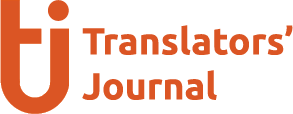Ever Googled yourself? Imagine a potential client doing the same—what do they find?
A good website can help you show how good you are at translating. It can also help you find new clients and make people trust you as a language expert.
In this article, we’ll explore the real benefits of a personal website and why every translator should have a website to improve branding, client acquisition, and earning.
10 Key Benefits of Having a Translator Website
1. Establishing Your Online Identity
- First Impressions Matter: The first thing potential clients will do after hearing about you is Google your name. A professional website serves as your digital business card, showcasing who you are and what you offer. With a sleek design and clear messaging, you can instantly create a trustworthy and polished image, increasing your chances of landing clients.
- Building Trust: A personal website communicates your commitment to your craft. It’s a place where clients can learn about your experience, qualifications, and values. When potential clients see you’ve invested in creating a professional online presence, they’ll be more likely to trust you with their projects.
- Establishing Authority: One of the best ways to establish yourself as an industry expert is by publishing regular blog posts or articles on language-related topics. This positions you as a thought leader in your field. Over time, these pieces can help potential clients see you as a reliable resource for expert advice and services.
- Your Digital Business Card: A website is like an extended business card. It’s available 24/7 and can provide all the information clients need about your services, qualifications, and how to get in touch with you. It’s the first step in building a strong, consistent online brand.
- Building Credibility: A professional, well-maintained website demonstrates your seriousness about your freelance career. It not only gives you a platform to showcase your work but also serves as proof of your expertise and experience.
2. Attracting and Retaining Clients
- SEO and Visibility: A website optimized for search engines increases your online visibility. By strategically using relevant keywords on your pages (and in blog posts), you’ll show up in search results when potential clients search for translation services. This organic visibility can be more powerful than any paid advertising campaign.
- Content Marketing: By creating valuable content like blog posts, industry insights, and language tips, you can engage potential clients and draw them to your website. This helps in building an audience that sees you as more than just a translator, but as an expert with valuable insights.
- Online Directories and Listings: Being listed in online translation directories alongside your website increases your exposure. This helps clients find you when browsing directories like Proz, TranslatorsCafe, or even local listings in search engines.
- Showcase Your Expertise: Use your website to demonstrate your language skills, experience in different fields, and specializations. Whether you specialize in legal, technical, or medical translations, your website should highlight these areas to attract clients from the relevant industries.
- Client Testimonials: Nothing builds credibility like positive feedback from past clients. A testimonials section on your website allows satisfied clients to share their experience working with you. These testimonials act as social proof, increasing the likelihood that future clients will trust you with their projects.
- Portfolio: Your website is the ideal place to showcase your translation samples. Potential clients can review your previous work, ensuring them of the quality they can expect when they hire you. A well-organized portfolio can also demonstrate your versatility across different industries and types of translations.
3. Building Client Relationships
- Personalized Communication: Your website can serve as a hub for all communications with clients. From project updates to direct messages, clients will appreciate being able to contact you quickly and easily. This helps foster strong relationships based on clear, ongoing communication.
- Client Portal: Offering a secure client portal on your website allows clients to log in and access documents, project details, and timelines. This convenience can help build a sense of trust and professionalism in your interactions.
- Feedback and Reviews: Encourage clients to leave reviews on your website after completing a project. This not only shows that you value their opinion, but it also provides future clients with more proof of your reliability and skill.
4. Marketing Your Services
- Blog: Sharing blog posts on topics like industry trends, translation best practices, and cultural insights can attract more clients. These posts also improve your SEO and give your audience more reasons to return to your site regularly.
- Case Studies: Feature specific projects or translation challenges you’ve worked on and describe how you solved them. This not only shows your problem-solving abilities but also gives potential clients an idea of the caliber of work you deliver.
- Testimonials: Include client testimonials prominently on your website. Real-world feedback about your work can help convince potential clients to hire you.
- Email Marketing: Building and nurturing an email list allows you to stay top of mind with clients and prospects. Regular newsletters can provide value through industry tips, language advice, or special promotions, increasing engagement and conversion rates.
- Social Media Marketing: Leverage social media platforms to drive traffic to your website. Share your blog posts, case studies, or language-related content to create engagement and direct followers to your website.
5. Standing Out from the Competition
- Unique Branding: A strong brand identity that includes a unique logo, color scheme, and messaging will help you stand out from other translators. Your website should reflect your personal style and values, which will make you memorable to potential clients.
- Creative Website Design: A visually appealing design that reflects your personality and professionalism sets you apart from the competition. This shows potential clients that you pay attention to details and that you care about the quality of your services.
- High-Quality Content: Engaging, well-researched content can help you differentiate yourself from other translators. Offering free resources like language tips, industry insights, or translation tools will provide value to your audience and establish you as an expert in the field.
- Innovative Features: Consider adding features like online translation tools, language learning resources, or interactive FAQs that help visitors get the information they need quickly. These can make your website more user-friendly and increase engagement.
6. Streamlining Your Workflow
- Centralized Platform: Your website can serve as a one-stop platform to manage everything from client communication to invoicing. This helps you stay organized and streamline your workflow, saving time for both you and your clients.
- Online Booking System: Allow clients to book appointments directly from your website. This not only adds convenience for them but also helps you stay organized and in control of your schedule.
- Secure File Sharing: Offer secure file-sharing capabilities for clients to upload their documents directly to your website. This ensures that sensitive information remains safe and easily accessible.
7. Why Branding Matters for Freelance Translators
- Professional Online Presence: A well-established online presence is crucial for building recognition and trust with potential clients. It demonstrates that you are serious about your profession.
- Showcase Your Unique Expertise: A personal website gives you the platform to highlight your unique translation skills, specialization, and areas of expertise in a way that makes you stand out.
- Consistent Brand Identity: Consistency in design, tone, and content across your website helps reinforce your personal brand. This unity fosters trust and professionalism.
8. How a Personal Website Helps You Attract More Clients
- SEO Strategies: Optimizing your website for search engines increases your visibility to potential clients actively searching for translation services. Effective use of SEO drives organic traffic to your site.
- Easy-to-Navigate Portfolio: A streamlined portfolio that showcases your best translation work allows clients to quickly assess your abilities and areas of specialization.
- Testimonials and Case Studies: Positive reviews and detailed case studies demonstrate your past successes and build trust with potential clients, encouraging them to reach out.
- Contact Form and Booking System: Including a contact form or booking system on your website makes it easy for clients to inquire about your services, streamlining communication and helping you secure projects.
9. Establishing Your Credibility and Authority with a Website
- Showcasing Qualifications: Highlighting your certifications, professional memberships, and language proficiency on your website helps validate your expertise and positions you as a credible professional.
- Blog or Knowledge Space: Sharing valuable insights about the translation industry through a blog or knowledge-sharing space can establish you as an authority in the field, attracting clients who value expertise.
- Transparent Pricing and Services: Providing clear and transparent pricing on your website reduces uncertainty for potential clients, enhancing their confidence in your services.
- Client Testimonials: Featuring testimonials from satisfied clients provides social proof and adds authenticity, helping new clients trust your work.
10. How a Personal Website Can Enhance Your Pricing Power
- Positioning as a Premium Service Provider: A well-designed website positions you as a professional and premium service provider, which justifies higher rates compared to less polished competitors.
- Transparent Pricing: Clearly displaying your pricing, especially when tied to your expertise and unique value, can help clients understand the worth of your services and are more likely to pay accordingly.
- Demonstrating Your Value: By showcasing your expertise through content, case studies, and testimonials, your website helps communicate why your services justify higher rates.
- Value-Added Services: Offering additional services through your website—like consultation or specialized services—can further enhance your value proposition and allow you to charge premium prices.
Ready to create your own personal website and elevate your freelance translation career? Start by defining your brand and taking your first step towards online success today!
FAQ
1. Do I really need a personal website as a freelancer?
Yes! A personal website is essential for building your online identity, establishing credibility, and attracting new clients. It serves as your digital business card, available 24/7, and showcases your professionalism.
2. How do I get started with creating my website?
To start, choose a domain name that represents your brand. Use website builders like WordPress, Wix, or Squarespace to create your site easily, or hire a web designer if you prefer a custom design. Ensure your website has clear sections such as your portfolio, services, about page, and contact details.
3. Can I include my pricing on my website?
Yes, displaying your pricing can build transparency and trust. It helps potential clients quickly assess if your services fit their budget. You can offer packages or list starting prices, and then provide more detailed quotes upon inquiry.
4. How do I attract clients to my website?
Optimize your website for search engines (SEO) by including relevant keywords, creating blog content, and sharing industry insights. Additionally, getting listed in online directories, networking on social media, and using content marketing are great ways to drive traffic.
5. How often should I update my website?
Regular updates are key to keeping your website relevant. You should update your portfolio with new projects, add fresh blog posts or insights, and refresh testimonials every few months. Regular updates help improve your SEO and show potential clients that you’re active and engaged in your work.
6. Should I offer additional services through my website?
Absolutely! You can offer additional services, such as consultations, specialized translations (legal, medical, etc.), or language learning resources. These value-added services can justify higher rates and set you apart from competitors.
7. What if I’m not tech-savvy?
If you’re not familiar with building websites, many website builders offer user-friendly templates that make it easy to design a professional site without coding knowledge. Alternatively, hiring a freelancer or agency to design the site is also an option.
8. How do I ensure my website is secure for clients?
Ensure your website uses HTTPS encryption to secure sensitive information like client communications and file transfers. If you offer client portals or file uploads, make sure these features are password-protected.
9. Do I need a blog on my website?
While a blog isn’t mandatory, it’s a powerful tool for attracting clients. Regularly publishing language-related content can improve SEO, establish you as an authority, and engage potential clients with valuable insights.
10. How can I make my website stand out from other translators’ websites?
Focus on your unique selling points. Whether it’s your niche expertise, your personal style, or your high-quality content, make sure your website reflects what sets you apart. A well-designed, user-friendly website with engaging content can make a lasting impression.



